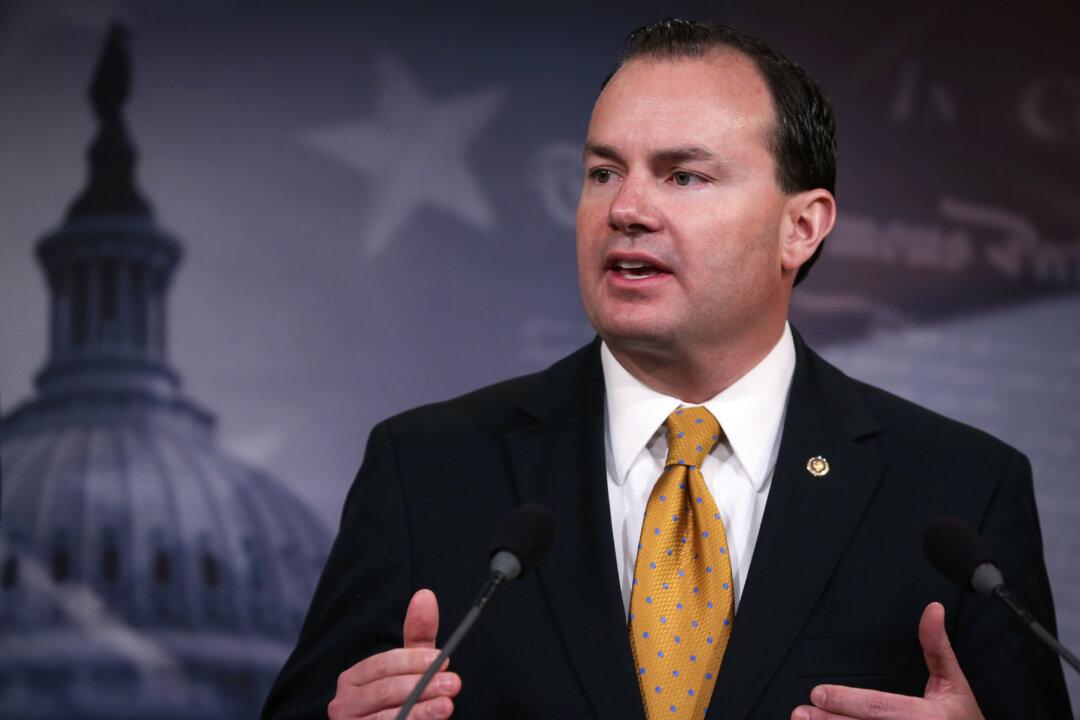All members of the Senate should have an opportunity to vote for or against earmarks contained in the Minibus emergency spending bill, such as one that would provide $2.5 million for kayaking and snowboarding experiences for residents of a small town in New Hampshire, four Republican lawmakers say.
“We’ve got 650 pages of nothing but earmarks in this bill and you’ve got over 6,000 separate earmarks. Look, I am sure that some of them are for good things that will benefit good people, and I am sure that some of them satisfy at least part of that [standard] but they aren’t necessarily the prerogative of the federal government,” Sen. Mike Lee (R-Utah) told reporters during a March 6 news conference in the U.S. Capitol.





